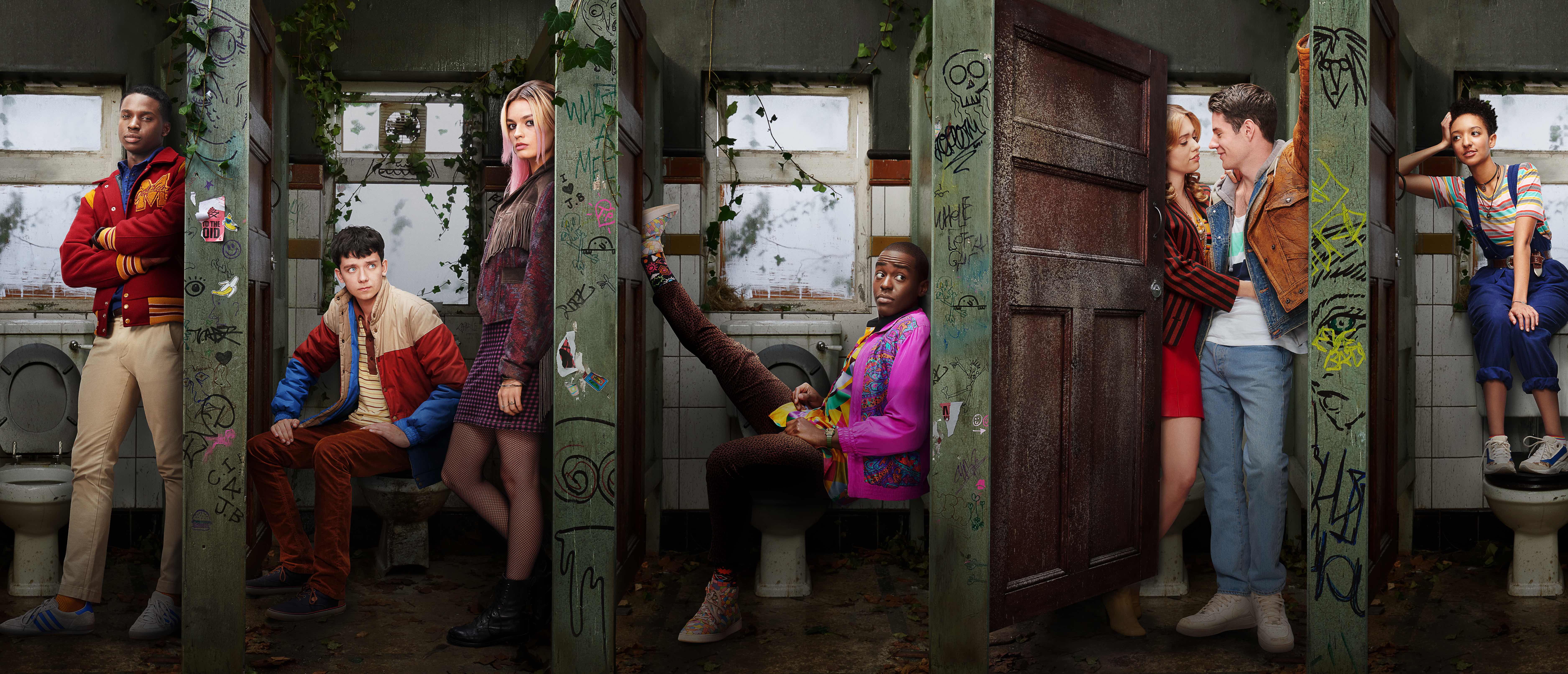If, like me, you’ve been craving a quick, eight-episode show filled with drama and laughs, look no further than one of Netflix’s newest originals, “Sex Education.” Set in a fancy prep school in a small town in England, the series stars Asa Butterfield as the charmingly awkward Otis, who prefers to remain unnoticed and unpopular instead of seeking attention like most of his peers. However, once the mysterious “bad-girl” Maeve (Emma Mackey) discovers that Otis’s mother is a sex therapist (and that Otis isn’t too bad at sex therapy himself), the two team up to start a sex advice business for their fellow students. Hilariously awkward adventures ensue.
People are complicated, especially high schoolers. I’m assuming everyone here remembers being in high school, and I am willing to bet that your experience was not perfect. These high schoolers are far from perfect as well, and that is part of what makes “Sex Education” so fascinating. Otis has two main people in his life: his best friend, Eric, and his mom, Jean. Eric and Otis exemplify what a healthy, positive male friendship should be. They support each other through everything, and they are each willing to do whatever it takes to make the other happy. Otis dresses up in drag and buses across town to watch Eric’s favorite movie for his birthday. When they have a major falling out, it is difficult to watch. Still, even an argument as big as this can’t stop them from being there for each other when they need it most.
Otis’s relationship with his mother is more complicated; after seeing his father literally in the midst of cheating on his mom, Otis becomes sexually repressed, a problem which Jean cannot help but get involved in. After all, she is a sex therapist. Otis tries to lock her out of his increasingly complicated life. He and Maeve take on more clients and get involved in relationships of their own, but Jean continues to meddle. She goes so far as to make Otis the topic of her next book.
As each episode progresses, more and more about each high schooler’s relationship with his or her family and friends is revealed. New characters cause shifts in their already chaotic lives. These relationships make the show feel real in a way that many other shows do not; “Sex Education” portrays real problems and real feelings that many high schoolers have to deal with.
Along with the intricate relationships in “Sex Education,” the diversity among the cast and characters will resonate with many viewers. For starters, the two most popular boys in school include Jackson, the champion swimmer who is black and has interracial lesbian mothers, and Anwar, the leader of the “Untouchables,” who is Indian and openly gay. Otis’s best friend Eric is the only other openly gay student in the school, but he feels unwelcome in his church. While his family accepts his sexuality, they fear for his safety and how others will perceive him. Additionally, one of Otis’s first clients is an interracial lesbian couple who want to have sex that actually feels good for both of them. One of the characters has an abortion, and we get to follow her through the process, pro-life protesters and all. “Sex Education” isn’t your typical “Vampire Diaries” or “Gossip Girl;” there is actual representation in a way that feels completely normal, which you don’t often see depicted in television.
Furthermore, “Sex Education” deserves the hype because of its importance for many teens. Growing up, I went to a Catholic school. I don’t even remember having sex education at all. I think we skipped that chapter in health class. A lot of teens have to learn about sex as a taboo subject that you can only access through the internet and experience. This show will hopefully change this view for a lot of teens. The show mentions that almost all of the students have had sex over the summer, but many of them have problems in their relationships. Each episode starts off by portraying the couple and what their problem is, and by the end of the episode, Otis is able to help them through it. Sex is almost never portrayed as a negative activity; there are plenty of sex-positive messages, including one particularly powerful moment when the entire female cast yells together that “it’s my vagina!” No context needed. There’s masturbation, LGBTQ+ representation, and actual good advice. Every teenager should watch this show.
And, if the strong relationships, diversity and sex positivity aren’t enough to convince you to watch “Sex Education,” hear it from the cast themselves: “because as well as a lot of genitals, ‘Sex Education’’s got a lot of heart.”
Contact Caroline Keyes at ckeyes22 ‘at’ stanford.edu.
